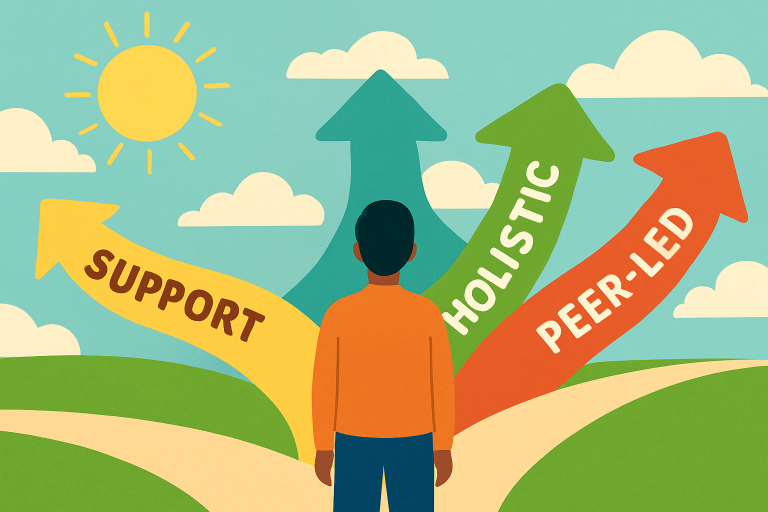Key Takeaways
- Recovery is a personal journey that benefits from new strategies and supportive environments.
- Combining evidence-based therapies with holistic practices offers diverse options for individuals seeking sobriety.
- Community involvement, technology, and peer support are changing the addiction treatment landscape.
- Understanding the science behind addiction and treatment improves outcomes and reduces stigma.
Table of Contents
- Why Alternative Recovery Methods Matter
- Building A Supportive Environment
- The Role Of Technology In Addiction Recovery
- Holistic Approaches and Their Growing Acceptance
- The Power Of Peer-Led Programs
- Understanding The Science: Neurobiology Of Addiction
- Navigating Challenges: Relapse And Resilience
- Looking Ahead: The Future Of Recovery Support
Why Alternative Recovery Methods Matter
Addiction is often portrayed as a linear journey from substance use to abstinence through familiar pathways, such as inpatient rehab or 12-step programs. While these traditional methods are invaluable, more individuals are exploring diverse and alternative recovery options to tailor their healing experiences. Incorporating different approaches creates flexibility and makes it easier to sustain motivation and engagement over time. If you’re considering your options or searching for more information about innovative addiction recovery methods, understanding what’s available can empower you or a loved one to make confident choices along the way.
Recent studies underscore the benefits of combining evidence-based treatment with holistic and integrative strategies, showing that expanding available methods can improve outcomes. Patients are more likely to find sustained success in recovery when they align treatment options to their unique preferences, needs, and life circumstances.
Building A Supportive Environment
A solid support network is the cornerstone of addiction recovery. This environment extends far beyond immediate family or friends. Many benefit from joining structured group therapies, online forums, or sober living homes—each offering unique connections and accountability.
Participating in a sober community can be a lifeline, providing practical resources and a sense of purpose and belonging essential for long-term success. Establishing daily routines and safe spaces is conducive to healthy living, lessening the temptations and triggers that undermine the healing process.
The Role Of Technology In Addiction Recovery
Modern technology revolutionizes addiction treatment by making help accessible, flexible, and private. Telehealth has removed distance and mobility as barriers, allowing anyone to participate in therapy and check-ins from the comfort of home. Dedicated mobile applications empower individuals to track sobriety milestones, monitor emotional triggers, journal progress, and communicate instantly with supporters.
Technology’s convenience and consistency help individuals stay connected to care even during unpredictable life events, reducing lapses and increasing recovery rates. Families and loved ones also benefit from technology, as it opens up channels for real-time communication, education, and encouragement.
Holistic Approaches and Their Growing Acceptance
Mindfulness-based practices, yoga, meditation, and expressive therapies like art and music are increasingly recognized as essential to comprehensive recovery plans. Communities and treatment centers are integrating these modalities to help individuals manage emotional distress, develop self-awareness, and address the root causes of addiction. According to a National Institutes of Health article, holistic approaches not only help alleviate withdrawal symptoms but also foster emotional resilience, reducing the risk of relapse and supporting mental wellness long after treatment ends.
The Power Of Peer-Led Programs
Peer-led recovery initiatives are gaining momentum for their profound impact on sustained healing. Connecting with others who have firsthand experience can break down barriers of mistrust, stigma, and isolation that often hinder progress. A growing body of evidence reveals that peer counselors help bridge the gap between structured treatment and independent living through mentorship, shared goals, and empathetic accountability. Peer-led programs often adapt quickly to community needs, making them a dynamic and relatable resource for people at any stage of recovery.
Understanding The Science: Neurobiology Of Addiction
Addiction is a chronic disorder rooted in brain chemistry and neurological pathways, particularly those involved in reward, impulse control, and emotional regulation. Repeated exposure to substances rewires these circuits, leading to cycles of compulsion and craving. Today’s evidence-based therapies are increasingly designed to repair and retrain the brain, helping individuals form new habits and healthier thought patterns. An awareness of these biological underpinnings can replace shame with self-compassion and reinforce that addiction is a medical issue, not a moral failing.
Navigating Challenges: Relapse And Resilience
Hurdles are to be expected in any recovery journey, and relapse is unfortunately common. However, experiencing a setback should be seen as a signal for reflection and adaptation, not defeat. Building resilience involves recognizing triggers early, establishing reliable support systems, and celebrating incremental victories. Many people find additional value in self-reflection practices, ongoing therapy, and regular peer check-ins. Taking a proactive and nonjudgmental approach to challenges can turn obstacles into powerful teaching moments, strengthening resolve for the future.
Looking Ahead: The Future Of Recovery Support
The addiction treatment landscape is evolving rapidly, offering a wider range of resources than ever before. From scientific advancements and digital solutions to peer-led groups and holistic therapies, new pathways to recovery are reshaping what’s possible for individuals and families. Staying informed and open to novel approaches can maximize the odds of building a healthy and fulfilling life in recovery.
Jane Lee is a versatile writer and storyteller with a passion for exploring diverse themes through her work. With a background in literature and creative writing, Jane has authored numerous articles and stories that captivate and inspire readers.



